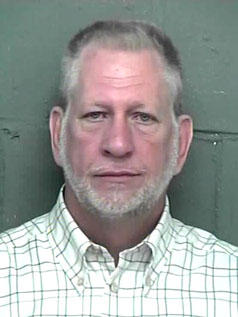With the Summer holidays in full swing, many unsuspecting tourists are swindled out of their hard earned vacation money. Remember that fraudsters all over the world rely on one thing- the element of greed to induce someone into falling for one of their scams. If it seems too good to be true, it probably is. Here are some of the more common scams found when traveling.
Black Market Money exchangers, who offer you a higher rate and then short you on the amount and or give you counterfeit currency.
Counterfeit tickets, particularly train, being sold at bargain rates.
Hidden charges on rental vehicles. Make sure you determine the total cost and the hidden charges before renting.
Credit Card and Check fraud. Protect your personal information and be careful what you throw away, especially in hotels. It's a good idea to use safes that are normally provided free of charge, either in the room, or at the front desk.
In some countries, be careful of your credit card being taken out of your view. The information is sometimes being copied to use in making counterfeit credit cards.
Skimming of ATM cards is on the rise. This is when the information is skimmed off your ATM/Debit card and a hidden camera records your actions on the pin pad. Always conceal your actions when putting in your pin number. The result of this is a counterfeit card being produced and your account emptied.
Being offered gems, antique items, or other great deals. Make sure what you are buying isn't counterfeit, or even worse illegal to import.
Although, Traveler's Cheques are considered replaceable, you still have to prove they weren't lost due to your own negligence in many instances.
Most important of all, plan your trip carefully. Scams on travel are all over the place and increasing with the use of the internet.
Here are some tips from the National Fraud Information Center."Be skeptical if you receive a call or postcard offering you a free or bargain travel package, especially if the price seems completely unreasonable. Do not give out your credit card number, checking account number or agree to send money up front until you get the full offer in writing with all costs and conditions and have time to check it out."
"Do not be pressured into buying "NOW!" This should be your first warning sign. A good offer today will remain a good offer tomorrow."
"Refuse the offer if you're told that you have 18 months or more to take the trip. By the time you try to make reservations, the company could be out of business. Many illegitimate firms will use stall tactics so your offer will expire before you can take a trip. Besides, promising that bargain prices to a desirable location are available at any time are usually false. Prices and availability vary wildly between peak and off-season. No company can guarantee below normal off-season rates at the peak of the tourist season."
"Get everything in writing. Make sure the written information includes the price of the package plus any additional charges. Find out exactly what is included in the package price and what isn't. Get the names of specific hotels, airports, airlines and restaurants that are a part of the package. Contact these establishments to double check the arrangements (Find the phone numbers yourself. Do not use a number provided by the company). If they've never heard of the firm offering you the trip, don't sign up."
"If the package doesn't include certain parts of your trip, such as air travel to and from the port of embarkation for a cruise, find out if you have to purchase that through the company or if you can arrange your own travel. Some companies offer you the cruise and hotel accommodations at cost, but then make a profit by selling air travel at a ridiculous mark-up."
"Check prices with local travel agencies. Unscrupulous companies often have hidden charges that can end up making a trip cost more than if you'd bought it through a reputable agent. You may not even find out about these charges until you are already in the middle of the trip and are unable to refuse payment. After you get all the information in writing, shop around to see who has the best deal. You may find out that the travel agent down the street can get you a cheaper trip with less hassle."
"If you need advice about a telephone solicitation or you want to report a possible scam, call the NFIC hotline at 1-800-876-7060. You can also ask questions or report fraud using our
online forms."
You can go to the NFIC directly by clicking on the title of this post.



